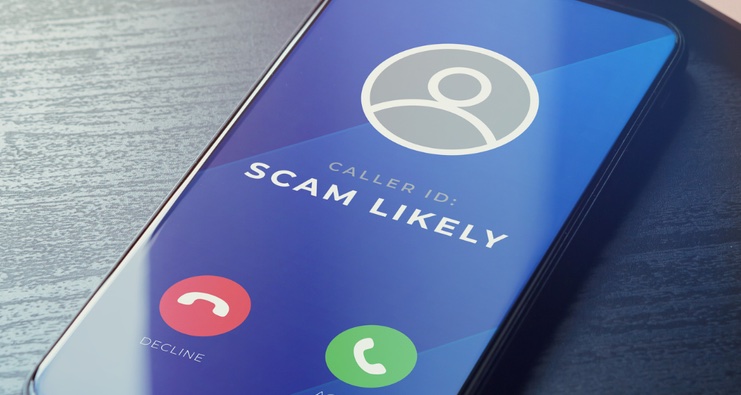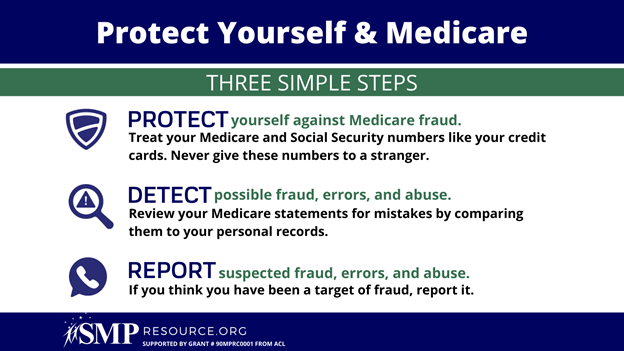
Financial Elder Abuse-Spot Fraud
Financial elder abuse, in which a senior is coerced, bullied, or tricked into giving money or other assets, is the most common form of elder abuse and the fastest growing. Most of the abuse is committed by family members or people the senior knows. Scams by strangers, though less common, often happen more quickly and can result in bigger financial losses.
The National Center on Elder Abuse estimates that only one in four cases of financial abuse is reported. Most seniors never report abuse—even when they know their funds are being taken—because they’re overwhelmed at the idea of involving the police, or fear being forced to go to a nursing home or are ashamed, especially when the abuser is a family member or caregiver. Isolation of the senior by the perpetrator is a strong indicator of undue influence. Often the victim is already living alone and sometimes is removed from contact with outsiders, due either to physical limitations or a psychological fear of leaving the home.
Be aware of troubling signs:
- IRS or Social Security Scam Complaints of stolen pension, Social Security checks or credit cards. Neither the Social Security Administration nor the IRS will ever call you or send you an email. Social Security numbers are never blocked or suspended. A scammer pretends to be an IRS investigator or someone from the Social Security Administration. They say that you owe additional taxes or your Social Security number has been suspended. They talk about the back taxes and penalties owed or say that your Social Security number has been used in a crime. They say that this can all be cleared up quickly if you will simply wire them money or verify your information.
- Banking Scams Sudden changes in a senior’s banking habits. Frequent withdrawals being made through ATMs, especially if the victim is frail and has not previously used an ATM and transfer of funds to new accounts at banks with which the victim has had no prior connection. New signatories are added to an elder’s account. Sudden transfer of assets to a family member or acquaintance without a reasonable explanation. Abrupt changes in a will or other financial documents. Monitoring a senior’s purchases and payments can clue you into payment requests that may be fraudulent. Set up safeguards at the bank. If there are concerns, an authorized person can set up a small bank account and debit card for the senior with spending limits. Other funds can be safeguarded in a separate, more secure account.
- Sweetheart Scam / Hard Luck Scam The scammer befriends the senior online. The scammer will prey on the senior’s loneliness and willingness to help. They may ask for something to be shipped to the senior’s house. Or they may ask for money because they have financial troubles. They try to isolate the senior from family and friends.
- Relative in Trouble Scam A scammer poses as either your relative or someone trying to help your relative through a dire situation. The pressure from the scammer to act right away and not consult anyone else is a red flag, the FTC says on its website. They’re counting on you to act quickly to help your family and to pay without stopping to check whether there’s a true emergency. Social media makes the task of gathering personal details easier and then scammers create threatening calls using the name of the relative, so seniors fear the scammers truly have their relative. Resist the urge to act immediately, no matter how dramatic the story is. Check the story out with someone else in your family or circle of friends— especially if you’ve been told to keep it a secret.
- Home Repair and Improvement Scams Scam artists target homeowners in a variety of ways. A scammer knocks on the victim’s door and says that they noticed some repair that needs to be done immediately. Older adults are most likely to have a “nest egg,” own a home with equity and have excellent credit. Seniors may need home modifications to accommodate changing needs, so they are a perfect target for dishonest contractors. Be informed before hiring a contractor: Get referrals from friends, family and neighbors; Check reviews from the Better Business Bureau; Verify that contractors are licensed and bonded for damage/theft protection and have liability/worker’s compensation insurance. Get written estimates from several contractors. Insist on a written contract. Never pay by cash. And stagger payments based on completion of the work.
Source: Consumer Reports; Forbes Advisor; Caregiving in the Comfort of Home

If you’re a victim of a scam…
You should report the fraud to the FTC at ReportFraud.ftc.gov. The FTC also offers a list of steps you can take to try to get your money back; whether you can do so depends on how you paid and how quickly you sought to cancel the payment.
Taking Care of Yourself – Balance Your Food Intake And Your Activity
- One small chocolate chip cookie (50 calories) is equivalent to walking briskly for 10 minutes.
- The difference between a large gourmet chocolate chip cookie and a small chocolate chip cookie could be about 40 minutes of raking leaves (200 calories).
- One hour of walking at a moderate pace (20 min/mile) uses about the same amount of energy that is in one jelly filled doughnut (300 calories).
- A fast food “meal” containing a double patty cheeseburger, extra-large fries and a 24 oz. soft drink is equal to running 2½ hours at a 10 min/mile pace (1500 calories).
Source: US Dept of Health & Human Services
Memory Care-Vulnerability
Social isolation and mental impairment (such as dementia or Alzheimer’s disease) are two factors that may make an older person more vulnerable to financial abuse.
 Safety Tips- Telephone Solicitors
Safety Tips- Telephone Solicitors
Fraudulent telemarketers prey on seniors. The hope of winning sweepstakes or an appeal to their sense of charity makes them vulnerable. To help a senior avoid becoming a victim of fraud, suggest that certain common-sense rules be followed when receiving calls from telephone solicitors:
- Be wary of a caller who is overly friendly and calls you by your first name.
- Never buy anything by telephone unless you make the call.
- Be wary of a caller who insists that you act immediately and never send a check by Western Union or overnight delivery.
- Never contribute to an organization over the telephone. Ask for a written request.
- Refuse “free” gifts requiring that you pay shipping charges—your credit card may billed for items you don’t want.
- Beware of a request to prepay the taxes on a prize. In legitimate awards the sweepstakes promoter will withhold taxes or report your winnings to the IRS.
